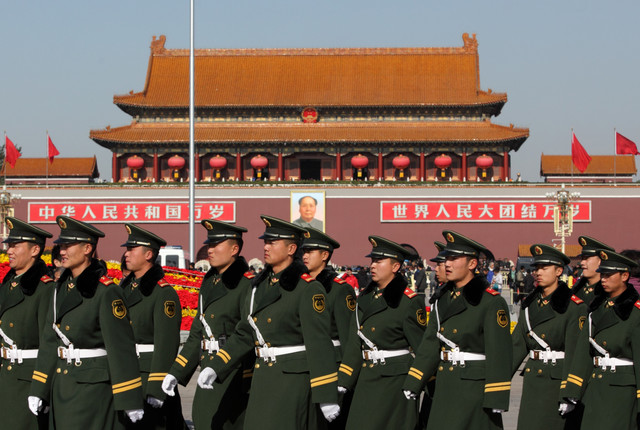"Carrying Arms Openly," Drones, and Covert Action
Jens David Ohlin (Cornell) has an interesting post up at LieberCode in which he discusses a range of LOAC issues raised by CIA involvement in drone strikes. Jens raises the question whether CIA personnel involved in drone strikes can qualify for combat immunity. Building from the premise that this question turns on compliance with the four conditions articulated in GPW Article 4(A)(2), Jens comes to the requirement of bearing arms openly and has this to say about it:
[I]t is unclear to me i
Published by The Lawfare Institute
in Cooperation With

Jens David Ohlin (Cornell) has an interesting post up at LieberCode in which he discusses a range of LOAC issues raised by CIA involvement in drone strikes. Jens raises the question whether CIA personnel involved in drone strikes can qualify for combat immunity. Building from the premise that this question turns on compliance with the four conditions articulated in GPW Article 4(A)(2), Jens comes to the requirement of bearing arms openly and has this to say about it:
[I]t is unclear to me if the privilege of combatancy can ever be consistent with covert action, regardless of which weapon system is used. If the action is not acknowledged by the relevant government, in what sense do our forces "carrying their arms openly"? Indeed, the whole point of covert action is that action is not conducted in an open manner. Under this argument, it would seem that covert CIA action is never entitled to the privilege of combatancy, regardless of whether the actual soldiers are CIA personnel or DoD uniformed employees reporting to the CIA director.I disagree with this analysis. The essential feature of the "covert action" category is not hiding the action itself, but rather hiding the government's responsibility for the action (50 USC 413b(e)). The action itself may be quite visible without losing "covert" status, in other words. More to the point, the action can be carried out by a person or via a weapons platform that visibily and distinctly is armed--like an armed drone--yet it will still count as covert action so long as government sponsorship is denied or not meant to be apparent. Put simply, it is true that covert action is "not conducted in an open manner" in the sense that sponsorship is not admitted, but I don't think that this is the sense of "open" that matters for the combat immunity analysis.
Robert (Bobby) Chesney is the Dean of the University of Texas School of Law, where he also holds the James A. Baker III Chair in the Rule of Law and World Affairs at UT. He is known internationally for his scholarship relating both to cybersecurity and national security. He is a co-founder of Lawfare, the nation’s leading online source for analysis of national security legal issues, and he co-hosts the popular show The National Security Law Podcast.


.jpg?sfvrsn=118b03e5_5)


